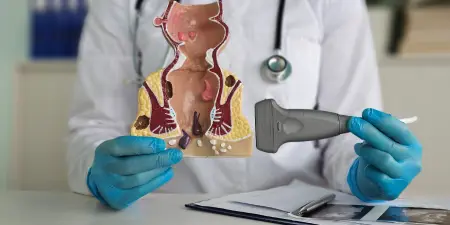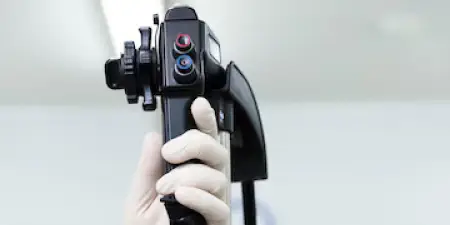Benign Prostatic Hyperplasia (BPH)

Conquering BPH: Understanding & Managing Benign Prostatic Hyperplasia
Benign prostatic hyperplasia, commonly known as an enlarged prostate, occurs when the prostate grows larger than its normal size, causing certain complications. Physiologically, the prostate surrounds the urethra, the tube that transports urine and semen. An enlarged prostate exerts pressure on the urethra, leading to frequent bladder voiding and other severe urinary complications, particularly in older men.
Dr. Aarthy P lends her urological expertise to treating benign prostatic hyperplasia (BPH). She is one of Chennai’s leading uro surgeons, specialising in advanced and minimally invasive techniques to achieve optimal results.
Dr. Aarthy, the expert urology doctor in Chennai, has extensive experience in providing tailored care that targets the underlying causes of BPH and alleviates symptoms like frequent urination and discomfort. Her approach aims to help patients regain urinary health and improve their overall quality of life.
Benign Prostatic Hyperplasia (BPH)
Causes & Symptoms
- The Causes
- The Symptoms
- Decreased secretion of testosterone in comparison to estrogen may trigger prostate growth.
- High levels of Dihydrotestosterone (DHT), a male hormone that supports prostate growth. Elevated DHT levels, even in the presence of low testosterone, may be connected to BPH since men who do not produce DHT generally do not experience this condition.
- Hormonal imbalance triggered by age and a family history of BPH increases the likelihood of the condition.
- Obesity, cardiovascular conditions, erectile dysfunction and Type 2 Diabetes may also lead to a swollen prostate.
- Nocturia or increased urination at night causes sleep disruptions.
- Frequent and urgent need to void more often than usual during the day.
- Intermittent and uneven urine stream that starts and stops abruptly.
- Difficulty initiating a stream of urine.
- Post-micturition dribbling or leakage of urine after voiding the bladder.
- A feeling of incomplete and unsatisfactory emptying of the bladder post urination.
Diagnosing BPH: A Targeted Approach to Diagnosis & Treatment
Dr. Aarthy P is dedicated to providing personalised care by conducting a comprehensive evaluation for each patient. By diagnosing the root cause of any issues, she ensures you receive the precise treatment they need for their unique health journey.
Personalised Treatments For Lasting Relief From BPH

Lifestyle Modifications
Lifestyle changes and pelvic floor strengthening exercises can help rectify mild symptoms of Benign Prostatic Hyperplasia.
Medications
Mild prostate enlargement conditions may require medication intake to shrink the prostate to its normal size.
Surgeries & Other Techniques
When medications and lifestyle modifications fail to deliver the desired results, Dr Aarthy may recommend minimally invasive procedures. This surgical technique uses small incisions, probes and scopes to rectify the issue. The procedures include:
- Urolift
Utilising surgical clips to retract the prostate away from blocking urinary passage.
- Laser Therapy
A scope provides heat to remove or dissolve excess prostate tissue.
- TUIP (Transurethral Incision of Prostate)
Releasing the pressure in the urethra through small incisions on the prostate.
Open Surgery
Open Prostatectomy, an open or robotic surgery, is performed for excessively large prostates or when Transurethral Resection of the Prostate (TURP) cannot be performed.
Consult Dr. Aarthy For Better Prostate Health






